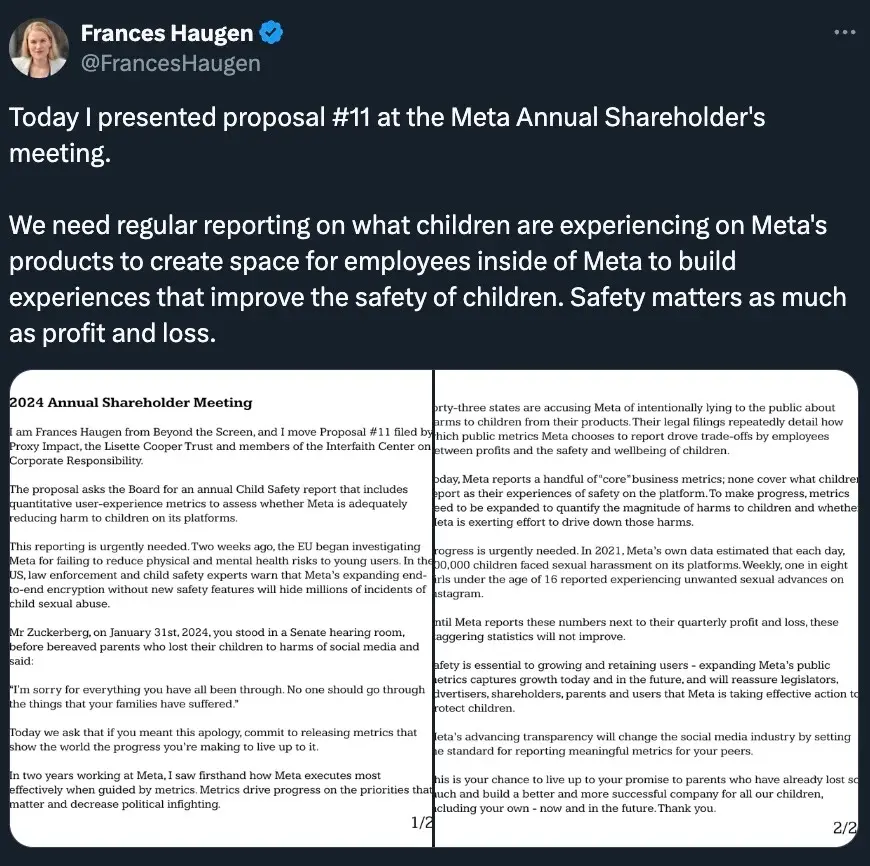Frances Haugen is “thinking of the children” – but also, of end-to-end encryption.
Some other whistleblowers whose actions benefited societies across the world have ended up in prison or exile.
Meanwhile, censorship-supporting Haugen, known as the Facebook “whistleblower,” is out there publishing memoirs, investing in cryptocurrency – and most recently, presenting proposals to none other than Meta’s shareholders.
Together with anti-encryption group Heat Initiative and Proxy Impact (specializing in shareholder proxy vote campaign consulting for left-leaning organizations), and several other groups, Haugen addressed the Meta annual shareholder’s meeting.

They want Meta’s Board to accept a proposal for the company to produce a child safety report each year, which would demonstrate whether Meta is “adequately reducing harm to children on its platforms.”
The proposal’s most notable feature is an attack on end-to-end encryption, with Haugen naming specifically this (and only this) technology in relation to child abuse threats.
To drive her point home, Haugen cited the EU launching an investigation into Meta for its suspected failure to “reduce physical and mental health risks to young users.”
The proposal (“Proposal #11) refers to more transparency regarding the disclosure of Meta’s business metrics that she said do not cover children’s own reporting about how they “experience safety” on Meta’s platforms.
The addition of such reporting would add to Meta gaining new and keeping existing users, and be well received by advertisers, legislators, etc., Haugen told the shareholders, playing on their interest in anything that might affect the company’s bottom line.
But the only specific harm Haugen names is encryption, and backed up that claim by citing law enforcement – notoriously interested in simplifying and expediting mass surveillance by undermining security, i.e., encryption on the internet – as well as “child safety experts.”
And they, Haugen said, agree that “Meta’s expanding end-to-end encryption without new safety features will hide millions of incidents of child sexual abuse.”
It is an unfortunate fact of politics and politicking that “child safety” is a term too often used to cover up the urge to introduce even more online censorship.
Haugen’s reference to “new safety features” that should be added to encryption (in itself, the best bet that anyone at this time has on safety on the internet), can be taken as a call to introduce backdoors that would weaken this crucial technology.


